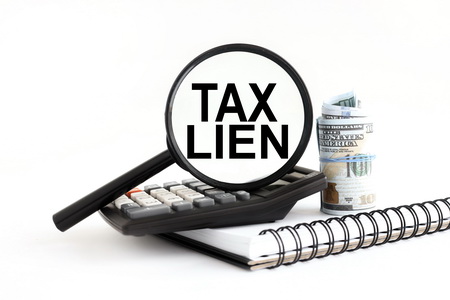All Categories
Featured
Table of Contents
If you are interested in the tax lien foreclosure process, you should contact a lawyer so you understand and consider the risks of this sort of investment. - tax lien certificate investing risks
Tax obligation lien sales are one manner in which cities and areas attempt to recoup several of the public dollars they've spent maintaining these residential properties deserted by exclusive owners. Yet, as we'll discuss in this post,. As soon as real estate tax are considered delinquent, local governments generally concentrate on offering notification of delinquency and attempting to gather the overdue quantities from the proprietor.
This process generally takes years - tax lien investing scams. If a proprietor has actually left and hesitates to pay tax obligations or keep the property, the city must invest tax obligation dollars to preserve the residential property. These costsboarding up the building, trimming overgrown grass and weeds, reacting to fire and police calls on the property, and moreadd up

Owners that have actually fallen on tough times absolutely need every effort to keep them out of delinquency and in their homes. Yet generally, if the residential or commercial property is vacant and scrubby, we have to presume the proprietor has actually selected to desert their passion in the residential property and that they are "resistant" to pay (though situations earlier while doing so may have required their hand).
How To Invest In Tax Liens
Take, as an example, a single-family home where the proprietor has actually long considering that walked away. For many years the neighborhood government has had to action in and eliminate garbage disposed in the backyard, board up the doors and windows, and respond to telephone calls regarding illicit task on the home. All these services set you back the city government taxpayer bucks.
In several states, those prices can be collected in the exact same way as the unsettled tax obligations, but not in all. In a tax lien sale (or tax certification sale) the local federal government typically holds a public auction where the winning bidder agrees to pay the most cash for the right to apply the tax obligation lien, starting with a minimum bid of at least the tax obligations possessed, plus appropriate passion, costs, and prices.

When a federal government markets the tax lien they are typically selling to a private purchaser the city government's authority to collect the financial obligation in exchange for in advance settlement of the taxes owed. The purchaser's acquisition typically includes the capability to make future rate of interest, in addition to recover related charges and prices sustained by the customer, if the residential or commercial property owner pays the tax obligation debt.
This is, in essence, privatization of a core government function: taxation. Tax lien sales are especially poor when it involves vacant, abandoned, and deteriorated homes due to the fact that they extend the duration prior to a home can be moved right into the hands of a new, much more responsible owner. Exclusive tax obligation lien purchasers hold the financial obligation, yet they do not possess the titlethe lawful right to possession of the propertyand oftentimes, they have no rate of interest in obtaining it.
What Is Tax Lien Real Estate Investing
Taking into consideration budget plan cuts, local federal governments in several states have actually lowered in-house real estate tax collection and enforcement efforts and looked to tax lien sales as a fast infusion of revenue - tax lien investing for beginners (invest in tax liens). Several counties select or are mandated by the state to offer tax obligation liens since it outsources collection and often generates extremely needed money previously in the collection procedure
By moving the city government's passion in and enforcement of the tax obligation lien to a private purchaser, city governments shed a lot of their versatility: adaptability to acquire vacant homes that the private market does not desire, or to help the proprietor stay clear of losing their residential property. With uninhabited homes, there is a much greater possibility that the personal customer isn't curious about the residential or commercial property itself.
Tax lien sales can create damage in traditionally disinvested locations. In a clinically depressed real estate market, fewer owners are able to retrieve the amount of the debt marketed to a tax lien customer. These areas are ripe for a various kind of tax lien investorspeculative proprietors looking for to get buildings on the affordable by foreclosing on the real estate tax lien, bleeding what little bit equity is left by renting a substandard residential or commercial property to prone renters, and after that deserting the home when they've gained back their financial investment.

Not all state regulations provide city governments the power to intervene in this cycle. Either way, the residential property continues to be uninhabited and in limbo, all the while imposing significant expenses on its neighbors and taxpayers. It's understandable that many city governments turn to tax obligation lien sales since they aid fund essential public services.
If the neighborhood government rather markets the residential property (aka the "tax obligation act"), as opposed to the tax debt, after that they are in control of what takes place to the home and the enforcement procedure if the owner continues to not pay the real estate tax owed. The government will certainly give the owner a practical time to repay the tax financial debt, after which the federal government will seize its rate of interest in the tax obligation lien and the proprietor's right of redemption.
From their inception, these auctions were venues for capitalists to make money via exploitation. In early 20th-century cities, well-known "tax obligation sharks" like Chicago's Jacob Glos and New York's Charles Wiltsie accumulated lot of money by getting up ratings of tax liens on domestic homes, charging their owners outrageous amounts to eliminate the lien, or waiting until the target date for negotiation passed and declaring the action.
Robert Kiyosaki Tax Lien Investing

Contact us to abolish tax obligation lien sales and overhaul tax misbehavior laws have regularly emerged. Usually, they have come in action to cases of inadequate, frequently senior homeowners who shed their homes to underhanded tax obligation customers over small tax obligation debts. With a few exemptions, state legislatures have resisted structural reforms (tax lien investing 101).
Those who have actually repaid their home loans (mainly senior persons or individuals that had actually acquired a family members home) have to additionally discover the money to pay residential or commercial property taxes. This describes why 70 percent of the homes cost tax lien sales are had outright. It is well past time for states to embrace an even more humaneand extra effectivesystem for building tax enforcement.
Table of Contents
Latest Posts
Buying Delinquent Tax Bills
Tax Liens For Sale Near Me
Unclaimed Tax Overages
More
Latest Posts
Buying Delinquent Tax Bills
Tax Liens For Sale Near Me
Unclaimed Tax Overages